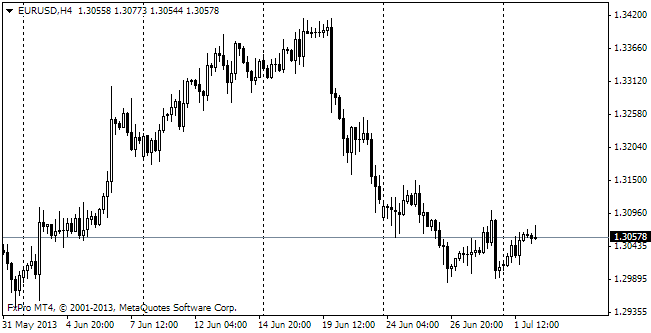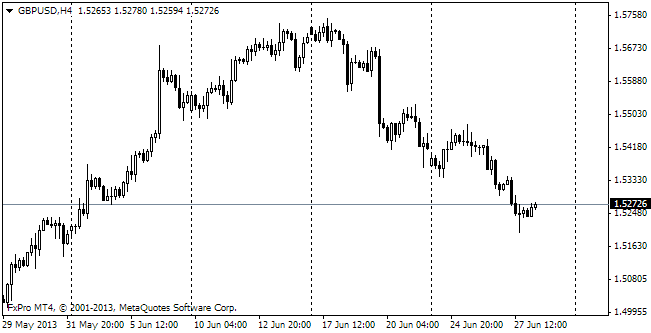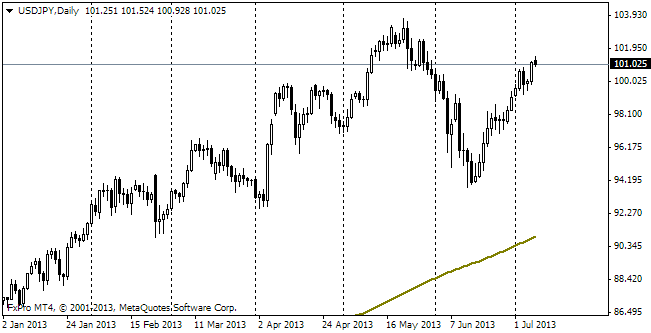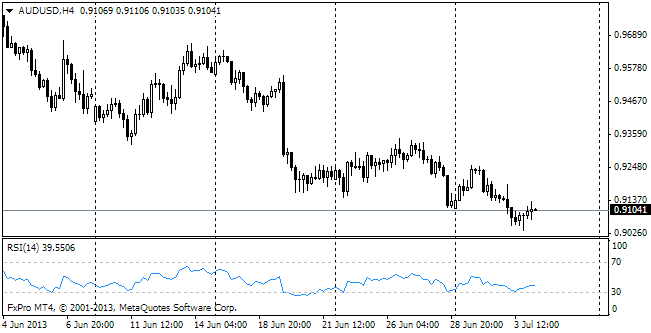EUR/usd
Such strong fluctuations in the euro aroused by inflation stats haven't been seen for long. Inflation at 0.7% y/y in the eurozone (against the expected 1.1%) made EURUSD drop by about two figures. By now EURUSD has declined to 1.3539, taking into account that Thursday's high was at 1.3738. Undoubtedly, selling of the euro coincided with the period of the dollar's appreciation at the beginning of the day, but then the decline was getting momentum on its own. The low inflation rates, which were observed both in strong Germany and weak Italy, enabled large investment banks to expect that the ECB could cut the rates already this year. As you remember, just a few days ago this variant was not considered though then it was also supposed that in the coming months the European CB would have to think of a new tool to inject liquidity into the marketsб as the duration of LTRO loans will end almost at the same time, forcing banks to pay back loans, and as there will be the need in fundraising to go through stress-tests. It's been considered that for the last couple of weeks the single currency has been in demand right because of the activity of the EU banks. And now we can see growth of speculations around Draghi's possible action to prevent liquidity drain from the markets. As a result, the euro has wasted the gains of the recent two weeks against the dollar and over one day has recouped its 1 ½ -week growth against the pound. Then the euro's depreciation against the dollar was boosted by the release of rather strong stats from the USA. The published unemployment claims showed the expected decline to 340K and Chicago PMI published later proved to be the highest since April 2011. Thus, the US affairs are getting better or at least are not as bad as was considered earlier. This makes the discrepancy between the USA and Europe bigger and also holds out a hope for the beginning of tapering in the near future.

GBP/USD
The pound managed to stabilize, despite all yesterday's troubles with the single currency. The sterling took some advantage of the euro's abandonment, but weakness of the single currency and the eurozone in general may hardly be in favour of the British currency. The end of the week should be quiet as most EU markets will be closed for All Saints' Day.

USD/JPY
The Japanese currency is in demand due to the troubles with the euro, but market participants are also upset by the Japanese corporate reports. Sony and Panasonic, the biggest producers of electronics in Japan, failed to meet expectations of the analysts. Such results on the whole show that one-year weakness of the Japanese currency will not be enough to revive the exhausted economy of the Land of the Rising Sun.

AUD/USD
It's been a hard week for the Australian currency, and the month on the whole was also momentous. Anyway, during the Asian session today the aussie got a chance to take breath after the decline due to the release of strong Chinese Manufacturing PMI. Producer prices grew by 1.3% over a quarter and the annual rate reached 1.9% (compare it to the decrease by 0.5% in Germany). The Chinese stats showed some stronger growth in October. The index rose to 51.4 from 51.1a month before.
